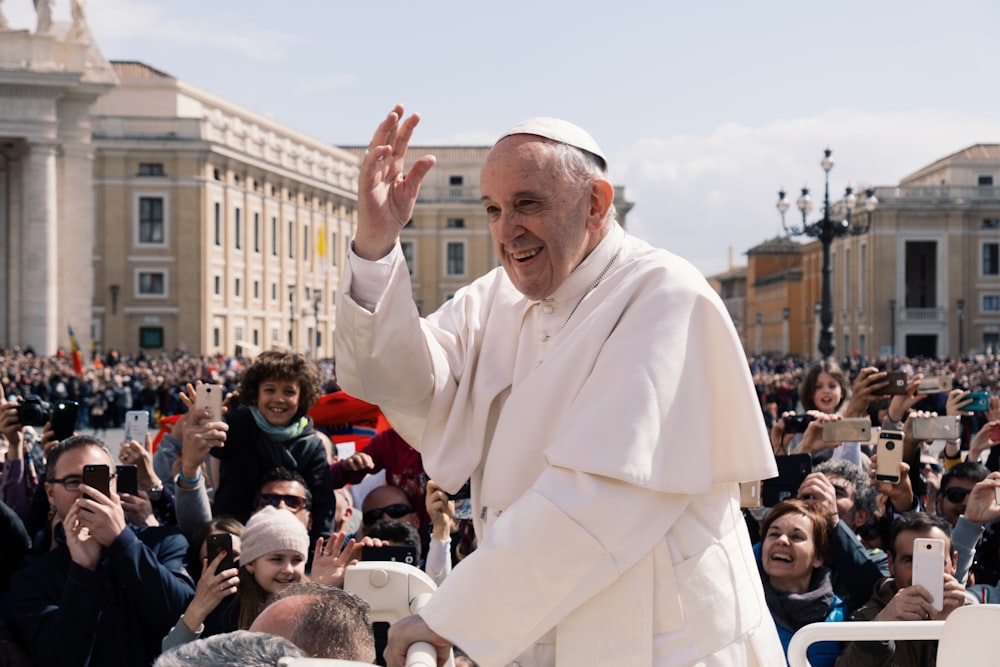We are delighted to share with you our library of resources. You can use the filter feature below to find topics most relevant to your curriculum.
The Pope
Learn all about the leader of the Roman Catholic Church...

Catholics believe that the first Pope was St. Peter, one of the twelve disciples who had followed Christ from the very beginning of His work. When Christ told Peter that he would be the 'foundation' of his Church, he also said that he would hold the 'keys' to the Kingdom of Heaven. In other words he would be inspired by the Holy Spirit to show the way to God as Christ had done himself.
Having chosen a successor, Christ was suggesting that others should come after Peter as well. The Papal Coat of Arms includes two crossed keys to symbolise Christ's words.
Since the time of Peter, there has been an unbroken handing on of leadership from Pope to Pope - this is called the 'Apostolic Succession,'
What does the Pope do?
After a while, the Church became too big for the Pope to look after on his own so the office of bishop and presbyter started. These are senior priests who represented the Pope to the people in the various regions. A Bishop's duties are to spread the Gospel, perform the mass and to lead his diocese as a servant of his community. However, the Pope does not 'rule' over the Bishops. He is one of them, although the most important of them. He is the 'first among equals' (primus inter pares) - just like how the captain of a sports team is also a player and plays alongside the rest of the team.
The Pope leads the College of Cardinals (chosen Bishops) and when he works with them all decisions are consensual – in other words, they must all agree on what they talk about. The Pope also has the right to speak as an individual with full, supreme, universal authority 'ex cathedra' (from his bishop's chair) - but this is very rare.

After a Pope dies, his ring of office - the Fisherman's Ring - and his personal seal are broken (new ones will be made for the new Pope). There are 9 days of mourning following his funeral and then about a week after that the College of Cardinals meets to start the electoral process. This meeting is called a Conclave.
Only Cardinals under the age of 80 are allowed to take part. They meet and pray in the beautiful Sistine Chapel and then are locked into an annexe of the chapel to cast their votes in a secret ballot. They are not allowed to leave the annexe until a new Pope is elected.
There must be at least two-thirds plus one votes for a new Pope to be elected. If this does not happen within two weeks, then a total of half plus one can be accepted. There are two ballots taken each morning and each afternoon. If a ballot does not result in the election (not enough votes) the ballot papers are burned with a chemical which makes the smoke black as it comes out of the chimney of the Chapel. This can be seen by the public in St. Peter's Square and they know that there is not yet a new Pope.
When the Ballot is successful and the elected Cardinal has accepted the honour, the ballot papers are burned without the chemical and white smoke comes out of the chimney. Everybody then knows that there is a new Pope.
